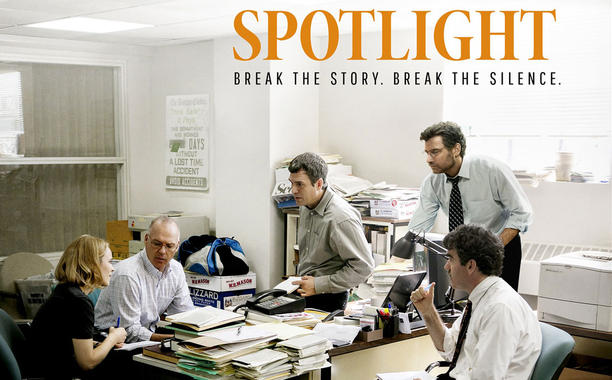Genesis 6:9—“This is the account of Noah and his family.”
As a summary, these words describe director Darren Aronofsky’s film Noah even better, perhaps, than the Genesis story itself.
Noah is constantly and intimately concerned with the relationships between Noah (Russell Crowe), his wife Naameh (portrayed masterfully by Jennifer Connelly), their three sons Shem (Douglas Booth), Ham (Logan Lerman), and Japheth (Leo McHugh Carroll), and their adopted daughter Ila (Emma Watson).
Over the course of the film, this family unit—as well as Noah’s place in the ancestral chain of his father and grandfather Methuselah (Anthony Hopkins)—begins to crumble under the pressure of Noah’s stubborn faith, which ultimately shows the darker side of Noah that is typically left out of adaptations.
Many grittier parts of the Noah story, as Rev. Dave Wright, University of Puget Sound Chaplain and Director of Spirituality, Service and Social Justice said, “are often washed out of the G-rated Sunday School version, because it’s a very adult story, almost divine genocide: the story of God’s wrath and God’s redemption, and ongoing human mucking-up.” Aronofsky’s film is never afraid to put these dark, complex elements back into the narrative.
Both Rev. Wright and Dr. Erica Martin, Affiliate Chaplain for Jewish Life at Puget Sound, expressed concerns that the character of Noah would be treated as a simple, straightforward hero. Martin said, “Christians have historically tended to read [the Noah story] as a prefiguring of Jesus,” which lends itself to what Wright called “primary figures of the Hebrew Bible being turned into universally peppy caricatures of some virtue or another.”
That is very clearly not the case with this Noah. Russell Crowe’s sometimes-heartwarming, but more often morally dubious if not downright unsympathetic performance as the “troubled, fallible fellow that the text of Genesis and Jewish tradition describe,” as Martin said, is more accurately described as an anti-hero. He often chooses not to save innocent lives, believing this to be against God’s plan for a cleansed world devoid of the human race, and is eventually faced with what he sees as the responsibility of killing his own descendants.
None of these elements are present in the Biblical account, but they fill in the blanks which appear across the traditional narrative.
In fact, the film’s changes essentially turn the Noah story on its head, questioning the concept of Noah as Genesis’s supposedly “righteous man, blameless among the people of his time,” and when paired with a horrifically wrathful God.
Furthermore, Martin explained, “The Flood story in Genesis is perhaps the single greatest example of the evolving nature of scriptural narratives. Not only does the biblical text take two different ‘Noah’ stories written in different centuries and sew them together, often leaving incongruous ‘seams’ in the text, but the Noah tale itself is based on older Flood stories.”
This concept of mythology as an amalgam of tales can explain why Aronofsky made the changes he did to the traditional Judeo-Christian narrative. The text of Genesis: 6-10 has a number of elements that are logically troubling, and Aronofsky’s Noah wrangles a coherent narrative arc out of that mythic tradition. When viewed as one of many ways of reading the collective mythological story, Noah raises a lot of important questions about the nature of God, and how to make ethical choices.
Martin predicted that, “Jewish readers will tend to be radically open to ongoing re-interpretation of biblical narrative [because] storytelling that ‘fleshes out’ the gaps or untold parts of the story is deeply a part of Jewish interpretive tradition,” and ultimately, “Christian and Muslim viewers will be none too pleased.”
While Rev. Wright noted the potential issue with Noah of “negatively impacting those who believe a certain tradition by mocking or disorienting their texts, and also reconstructing what the text means for a naive audience,” Aronofsky’s film, I believe, is trying to find the right way to tell this kind of story in our culture, and it comes very close to providing the right message.
Although not perhaps clear enough in the film, the story Noah seems to be trying to tell is that humanity does not need to be perfect to be worth saving, and that salvation can only come through evaluating our choices, our faith, and our selves.
Noah, rated P-13, is currently in theaters.
Dr. Erica Martin’s in-depth analysis of the Noah movie can be found on the website Flood of Noah, at floodofnoah.com. Martin’s review is NOT spoiler-free.


